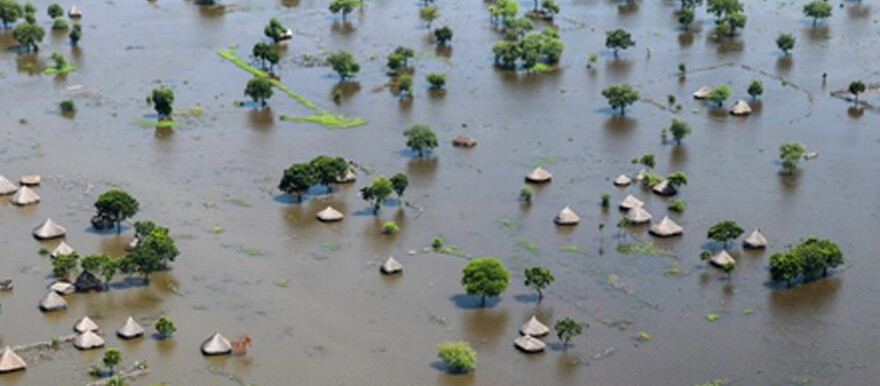Officials in the Jonglei State capital, Bor, have said that more than 200, 000 people have remained stranded in floodwaters without food in parts of the state since last year.
Speaking to Radio Tamazuj on Monday, Tuor Majok, the head of the state’s Relief and Rehabilitation Commission (RRC), warned that the situation of the flood victims could deteriorate in the coming months if there is no intervention and as the next rains start.
“All the 9 counties of the state have remained affected since 2020. There are about 243, 000 people who were displaced by the floods of 202 and 2021,” Majok said. “They were displaced from their homes and they are now staying in the islands. There is no dry land for cultivation. So, they remain without food.”
The RRC official warned of looming famine and called on the government and aid agencies operating in the country to intervene.
“This year there will be no agriculture. Where will people cultivate if there is no dry land? The only hope for the floods-displaced people is food donation but the response from our partners is low so I call on the donor community and the government to intervene,” Majok said.
Bior Ajang, a civil society activist in Bor, blamed the worsening humanitarian situation on government inaction since the floods started two years ago. He urged the government to take the lead in addressing the food needs of the flood victims.
For his part, the state cabinet minister, Tuong Majok, said: “The situation is not so well in the areas like Pigi, Fangak Twic East and Ayod. People are relying on wild fruits. As you know, our capacity is limited, so we will work with the aid agencies to avert this situation.”
Jonglei state has been hit by the worst floods in 60 years since 2020, leaving thousands of families homeless, without food and other basic needs.




